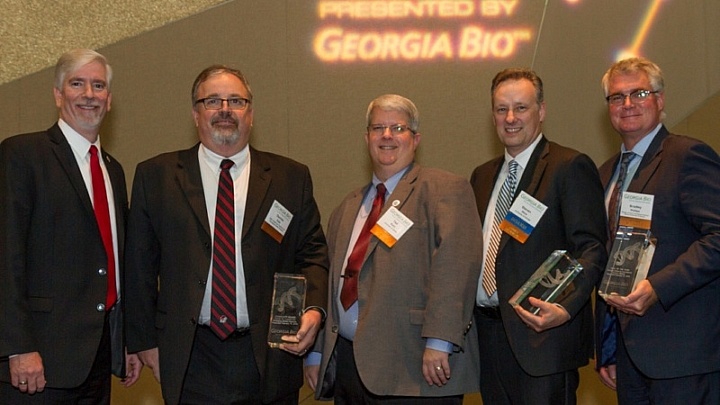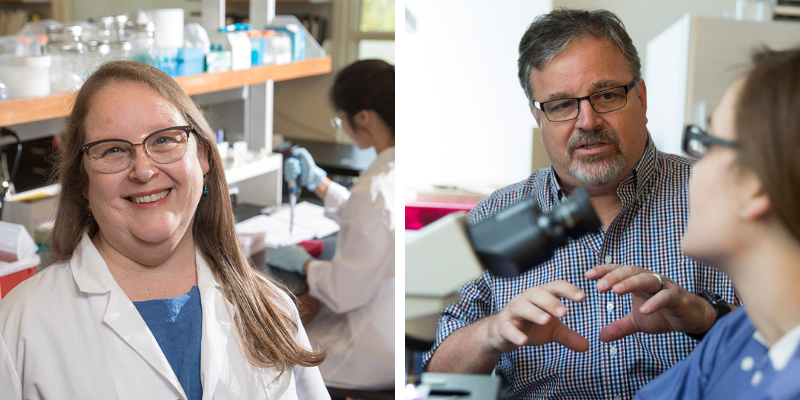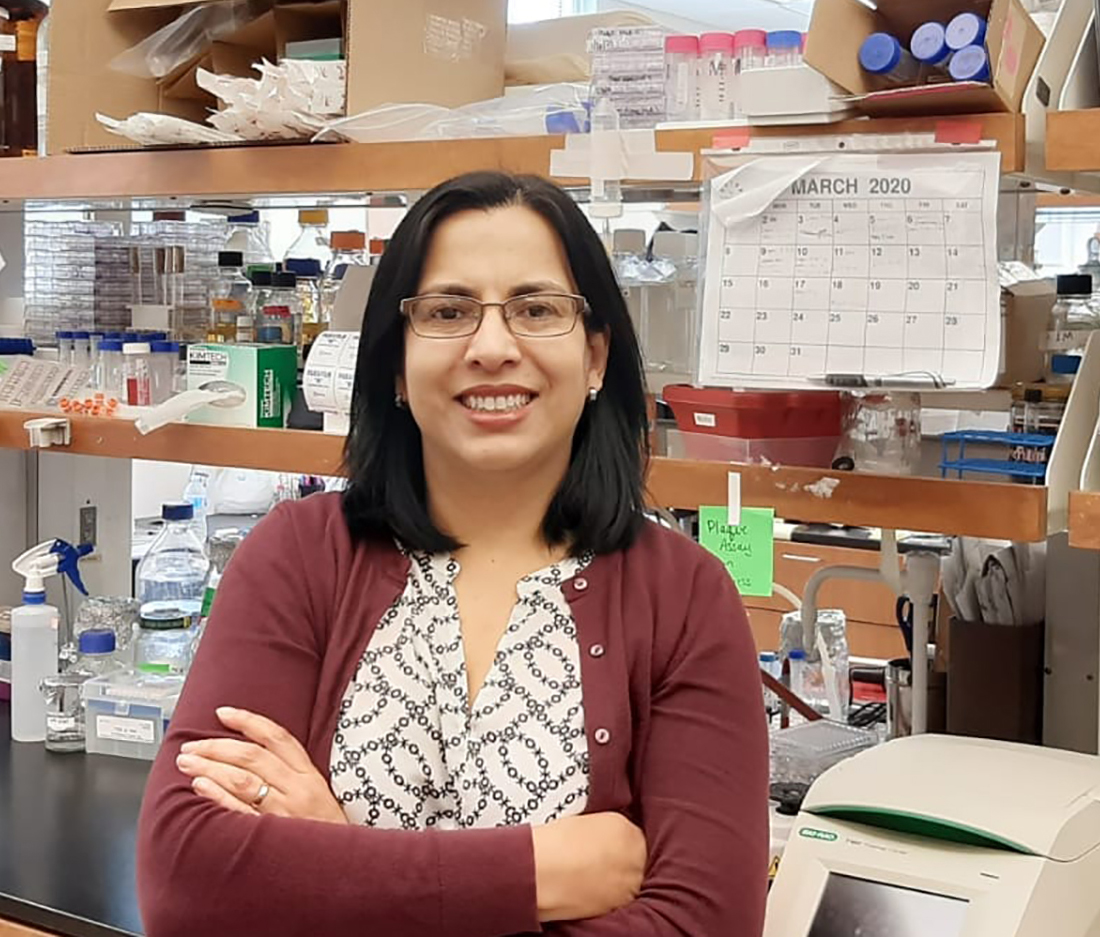
By Allyson Mann
The University of Georgia was well represented at the Georgia Bio Awards, with five awards recognizing programs either at or affiliated with the university. The awards were presented by Georgia Bio, the association for Georgia’s life sciences industry, at its 2018 annual awards dinner Feb. 15 in Atlanta.
This year, two UGA units—the Center for Vaccines and Immunology and the Center for Tropical & Emerging Global Diseases—received awards, as did ArunA Biomedical, a biotechnology company that grew out of faculty research. The university also is affiliated with two additional award winners, the Georgia Clinical & Translational Science Alliance and the National Science Foundation Engineering Research Center for Cell Manufacturing Technologies.
Georgia Bio members include pharmaceutical, biotechnology and medical device companies; medical centers; universities and research institutes; government groups; and other business organizations involved in the development of life sciences-related products and services.
“Improving human health and welfare is a vitally important part of UGA’s land-grant mission in the 21st century, and we have worked hard to expand our capabilities in this regard,” said UGA Vice President for Research David Lee. “It is gratifying to receive these awards from Georgia Bio, as they testify to the impact of our programs and the success of the faculty responsible for them.”
Ted M. Ross accepted the Phoenix Award, presented jointly to the Center for Vaccines and Immunology (CVI) and Sanofi Pasteur. Recipients of the Phoenix Award, sponsored by the Metro Atlanta Chamber and celebrating the best in industry and academic collaboration, have forged academic and industry relationships that drive translation and lead to new treatments and cures. Ross is Georgia Research Alliance Eminent Scholar of Infectious Disease and director of CVI, which is dedicated to improving human and animal health through new and improved vaccine technologies.
Two Deals of the Year Awards were presented in recognition of financial or commercial transactions that are significant to the development of Georgia’s life sciences industry. The first was awarded to the Georgia Clinical & Translational Science Alliance (Georgia CTSA), a team comprising UGA, Emory University, the Morehouse School of Medicine and the Georgia Institute of Technology that will train new investigators and develop the infrastructure for accelerating research-based improvements in clinical care and outcomes for the benefit of Georgia citizens. Bradley Phillips, the Millikan-Reeve Professor of Pharmacy and director of the Clinical and Translational Research Unit, is UGA’s principal investigator for Georgia CTSA, which received a $51 million National Institutes of Health statewide grant.
The second Deals of the Year Award was presented to the National Science Foundation Engineering Research Center for Cell Manufacturing Technologies (CMaT), which received a $20 million grant. CMaT is a federally funded consortium based at the Georgia Institute of Technology and designed to lower the cost and improve the reliability and safety of advanced cell therapies for chronic diseases like heart disease and cancer. The UGA lead for CMaT is Steven Stice, director of the Regenerative Bioscience Center, Georgia Research Alliance Eminent Scholar and D.W. Brooks Distinguished Professor in the College of Agricultural and Environmental Sciences.
Stice also accepted an Innovation Award for ArunA Biomedical, a biotechnology company he founded. ArunA Biomedical are experts in the design and scaling of a new class of cell-free biologic therapeutics and neural-specific drug delivery systems to treat central nervous system injury and neurodegenerative disorders. The Innovation Award honors those who are forging new ground by thinking outside traditional paradigms to create unique technology.
The Center for Tropical & Emerging Global Diseases received a Community Award, presented to those whose contributions to Georgia’s life sciences community are worthy of special recognition. Directed by Dennis Kyle, CTEGD is one of the largest international centers of research focused on diseases of poverty common to undeveloped and poor regions of the world. CTEGD researchers work on diseases that afflict hundreds of millions of people around the globe, including malaria, schistosomiasis, African sleeping sickness, Chagas disease, cryptosporidiosis, toxoplasmosis, leishmaniasis and filariasis.
Originally published at https://ugaresearch.uga.edu/uga-receives-life-sciences-industry-awards-from-georgia-bio/




